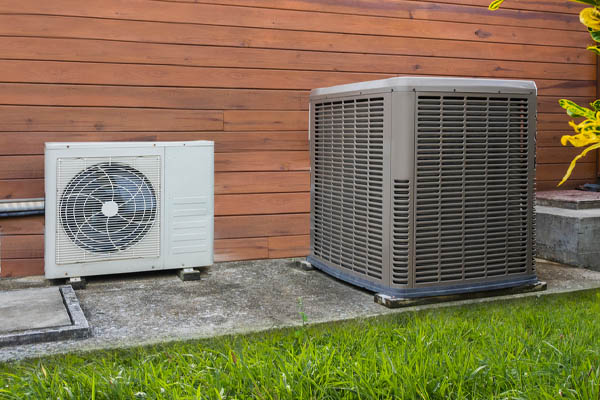
Noticing puddles around your heat pump can be unsettling. Minor condensation is typical, but excessive water might be a sign of a significant problem that requires immediate attention.
At PFO Heating & Air Conditioning, our expertise lies in swiftly identifying and resolving heat pump issues, ensuring your system operates efficiently and your environment remains safe and comfortable. This article explores the typical reasons behind heat pump leaking water, their possible impacts, and practical strategies to address and prevent these issues.
Solve Your Heat Pump Issues Today: Trust PFO Heating & Air Conditioning for professional repairs and solutions. Call PFO Heating & Air Conditioning for dependable repair services. Reach out now!
Heat Pump Leaking Water: What to Do
Contents
- 1 Heat Pump Leaking Water: What to Do
- 2 Understanding Normal Moisture Vs a Heat Pump Leak
- 3 Common Causes of Heat Pump Water Leaks
- 4 Signs Your Heat Pump Is Leaking Water
- 5 Potential Consequences of Ignoring a Heat Pump Water Leak
- 6 How to Address a Heat Pump Leak
- 7 Heat Pump Leaking Water: FAQs
- 8 Conclusion
- 9 Contact PFO Heating & Air Conditioning for Premier HVAC Services
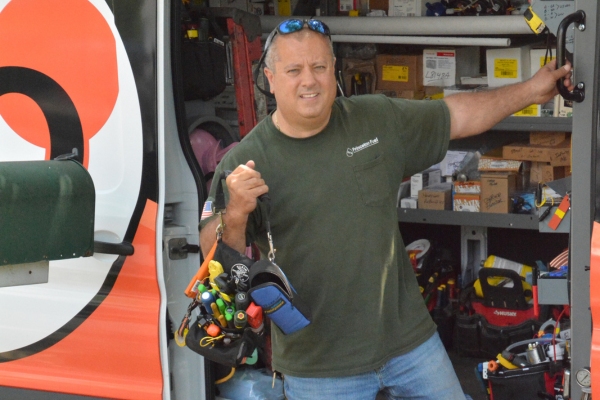
Understanding the causes and consequences of water leaks in your heat pump is the first step toward resolving them. Let’s now look at practical steps you can take to address this problem and keep your system in top condition.
Keep Your Heat Pump Running Smoothly: Don’t let heat pump issues disrupt your comfort. Let PFO Heating & Air Conditioning handle all your repair and maintenance needs. Reach out today for dependable service!
Understanding Normal Moisture Vs a Heat Pump Leak

Heat pumps naturally produce some moisture as part of their normal operation, especially during the cooling process, where condensation forms as the system extracts heat from the air. However, when you notice signs like excessive pooling of water around the unit or continuous dripping, this condensation may have turned into a problematic leak.
Address these leaks promptly to avoid risks such as potential water damage to your home and a decreased system efficiency, which can result in higher energy costs and premature wear on your heat pump.
Get Reliable Heat Pump Repairs: Let PFO Heating & Air Conditioning restore your comfort quickly and affordably. Contact us today!
Common Causes of Heat Pump Water Leaks
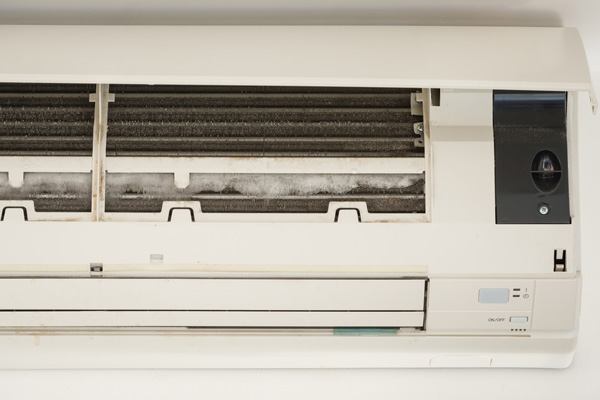
Understanding the reasons behind water leaks in your heat pump can help you identify and resolve issues more efficiently. Here are some common causes:
- Clogged or Disconnected Drain Lines: Blockages or loose connections in the condensate drain lines can prevent water from exiting the unit properly, causing it to back up and leak. Regularly checking and cleaning these lines can avoid such issues.
- Frozen Heat Pump Coils Leading to Excessive Water: During cold snaps, ice may form on the heat pump’s coils. When this ice melts, it can produce more water than the drain system is designed to handle, resulting in overflow and leaks.
- Cracked or Damaged Drain Pans: Over time, drain pans may become cracked or corroded. If the pan that collects condensate from the heat pump is compromised, water will leak and potentially cause harm to the surrounding area.
- Improper Heat Pump Installation or Leveling: A heat pump that is not installed correctly or is uneven can lead to improper water flow inside the unit. This misdirection can cause water to collect and leak in areas not intended to handle moisture.
- Other Contributing Factors: Occasionally, other issues may contribute to leaks, such as malfunctioning components like pumps or unusually high indoor humidity levels, which increase condensation within the system.
Stay Comfortable With Expert Heat Pump Solutions: Count on PFO Heating & Air Conditioning for expert heat pump services you can trust. Call us now!
Signs Your Heat Pump Is Leaking Water
If you suspect your heat pump may be leaking water, there are several signs to watch for that can confirm your suspicions. Visible water pooling around the unit’s base is one of the most apparent indications of a leak, signaling that water is not being contained or drained correctly.
Additionally, a leak can lead to increased indoor humidity levels, which might not only make the air feel more moist but can also foster the growth of mold and mildew, often detected by a musty odor in the home.
Unusual sounds during operation, such as gurgling or dripping noises, can also be a sign that water is not flowing through the system as it should, indicating potential blockages or malfunctions within the drain system. Recognizing these signs early can help prevent more significant damage and maintain the efficiency and longevity of your heat pump.
Potential Consequences of Ignoring a Heat Pump Water Leak

Neglecting a water leak in your heat pump can cause several significant issues that may impact both your home and the heat pump’s performance:
- Water Damage to Your Home: Continuous leakage can seep into floors, walls, or ceilings, causing structural damage. This can compromise the integrity of your home and may require costly repairs to restore.
- Reduced Heat Pump Efficiency & Performance: A heat pump with a water leak can lose efficiency because it must work harder to maintain the preferred temperature. This inefficiency results in elevated energy bills and less effective heating or cooling.
- Increased Heat Pump Repair Costs: Ignoring a minor leak can cause more severe damage over time, leading to complex repairs that are often much more expensive than if the initial problem had been addressed promptly.
- Mold and Mildew Growth: Water leaks create a damp environment that’s perfect for mold and mildew growth. This deteriorates air quality and can cause health concerns, particularly for those with respiratory conditions or allergies.
Affordable and Efficient Heat Pump Repairs: Reach out to PFO Heating & Air Conditioning for reliable service and fast results. Contact us today!
How to Address a Heat Pump Leak
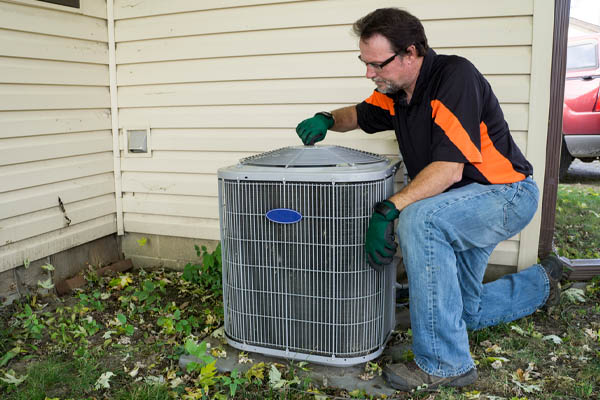
Properly addressing a heat pump leak involves several steps that can either be performed by homeowners or require the assistance of a professional. Here’s how to tackle each aspect:
Inspect and Clean the Heat Pump Drain Line
Locate your heat pump’s condensate drain line, usually a PVC pipe leading away from the unit. Check for any visible blockages or debris at the mouth of the drain. Use a wet-dry vacuum to suck out any blockages from the line, and flush it with a mixture of water and vinegar to clear out any remaining debris and prevent algae growth.
Your Local Heat Pump Experts Are Ready to Help: From repairs to maintenance, PFO Heating & Air Conditioning has you covered. Call today!
Check for Frozen Heat Pump Coils
If you see ice on your heat pump coils, turn off the system to prevent further damage. Allow the ice to thaw naturally, which may take several hours, depending on the temperature and the amount of buildup. Once thawed, check for any issues that could cause freezing, such as low refrigerant levels or poor airflow, and address them accordingly.
Examine the Drain Pan for Cracks
Regularly inspect the drain pan directly under your heat pump’s indoor part. Look for any signs of cracks or damage that could allow water to leak out. If damage is found, replace the drain pan immediately to prevent water damage to your home.
Call a Professional HVAC Technician
For leaks you can’t easily diagnose or resolve, or if your heat pump continues to experience issues, call a professional HVAC technician. A certified technician can thoroughly inspect the heat pump, identify the leak’s root cause, and perform necessary repairs or part replacements.
Stop Living With a Faulty Heat Pump: Contact PFO Heating & Air Conditioning now for fast and reliable repair solutions. Call now!
Preventive Heat Pump Maintenance Steps
Regular tune-ups are crucial to prevent future leaks and ensure your heat pump operates efficiently. Change or clean air filters every 1-3 months to maintain airflow and avoid strain on the system. Have an HVAC contractor clean the coils and check refrigerant levels annually. Likewise, they should ensure all connections and fittings are secure during routine inspections.
Heat Pump Leaking Water: FAQs
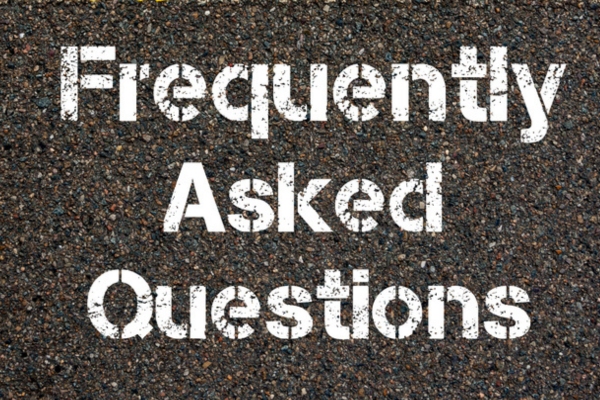
How Much Water Is Too Much Around My Heat Pump?
While occasional condensation is expected, significant or continuous water pooling often indicates a problem. If you notice large puddles that don’t evaporate or appear after every system cycle, it’s time to take action. Prolonged moisture can lead to inefficiency, increased humidity, and even structural damage.
Does Weather Affect Heat Pump Leaks?
Yes, certain weather conditions can contribute to water issues. High humidity can overwhelm the system’s drainage capacity while freezing temperatures might cause ice to form on coils or in drain lines. As the ice melts, it can produce excess water that the drain system struggles to manage. These environmental factors make regular inspections even more important during extreme weather periods.
Can a Dirty Filter Cause My Heat Pump to Leak Water?
Absolutely. A clogged filter restricts airflow, which can cause the evaporator coil to freeze. When that ice melts, it can produce more water than the system’s drain pan can handle. Keeping filters clean ensures optimal airflow and helps prevent the excess moisture that leads to leaks.
Professional Heat Pump Service You Can Rely On: Let PFO Heating & Air Conditioning handle your repair and maintenance needs. Contact us today!
What Should I Do If I See Water Near My Heat Pump’s Outdoor Unit?
Start by checking for visible blockages in the drain line and ensuring the area around the unit is clear of leaves, dirt, or debris. Also, look for signs of damage to the drain pan or connections. If you don’t find an obvious issue, it’s best to reach out to a professional technician who can diagnose and repair the problem before it worsens.
How Often Should I Check My Heat Pump for Potential Leaks?
It’s recommended to inspect your system at least once a month during peak usage seasons. Regular visual checks can help you catch small issues early, such as minor clogs or worn drain pans, before they turn into larger, more expensive problems.
Conclusion
Understanding the causes of heat pump leaks and recognizing the potential consequences are crucial for maintaining your system’s efficiency and preventing damage to your home. Common issues include blockages in the drain line, ice on the coils, or damage to the drain pan, which can lead to costly repairs if not addressed promptly.
To make sure your heat pump remains in optimal condition and to avoid the risks associated with water leaks, take immediate action at the first sign of trouble. If you encounter issues or require expert assistance, don’t hesitate to contact PFO Heating & Air Conditioning for expert advice and reliable service.
Trust PFO Heating & Air Conditioning for Expert Heat Pump Solutions: For reliable and professional heat pump repair and maintenance, choose PFO Heating & Air Conditioning. Contact us today and experience a service you can count on!
Contact PFO Heating & Air Conditioning for Premier HVAC Services
At PFO Heating & Air Conditioning, we provide top-tier heating and cooling services staffed by certified technicians who excel in HVAC tune-ups, repairs, installations, and replacements. Our technicians are not only highly trained but also bring a wealth of knowledge and experience to ensure your HVAC system is serviced with precision.
We pride ourselves on offering the most competitive rates for heating and cooling services in the Greater Princeton, NJ area. Our maintenance services are designed to enhance your comfort and increase energy efficiency, ultimately reducing your heating and cooling expenses. Whether you need a repair or a complete system replacement, PFO Heating & Air Conditioning will guide you to the best solutions that fit your needs and budget. We stand behind our work with a robust satisfaction guarantee.
Call PFO Heating & Air Conditioning today to schedule your service appointment and receive an in-home consultation. Call now!
Click here to contact us now or call us at (800) 253-9001 to find out more! Click the link to view our service area.
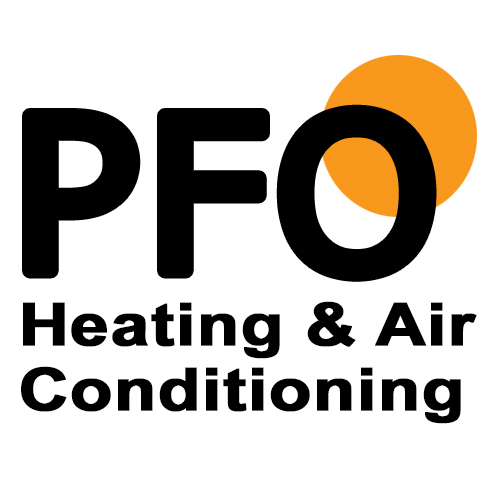
Related Articles:
- What is the Difference Between An Air Conditioner and A Heat Pump?
- The Differences Between Ductless Heat Pumps And Ductless Air Conditioners
- Heat Pump: Auxiliary Heat vs Emergency Heat
- Spring Maintenance Tips For Your HVAC System
- Discover The Benefits Of Having A Ductless Mini-Split System Installed



